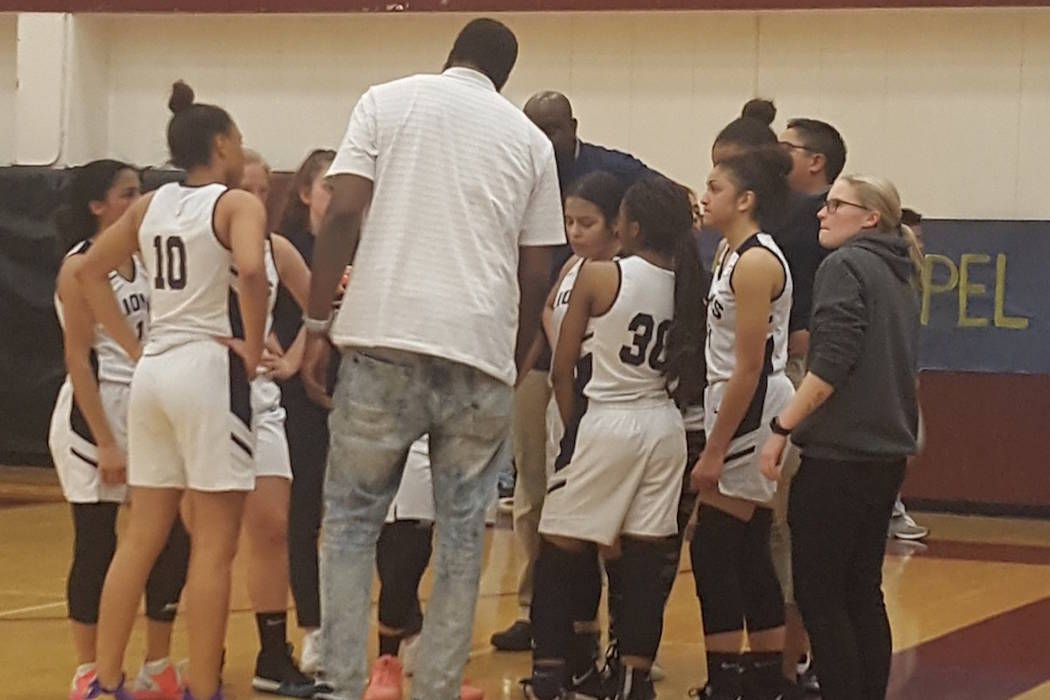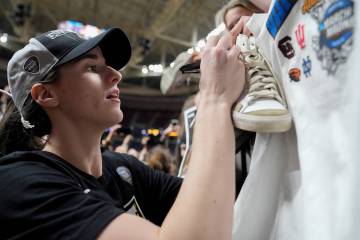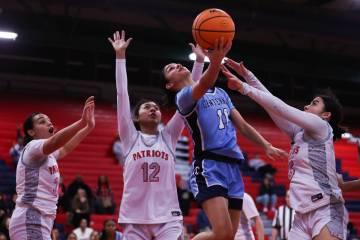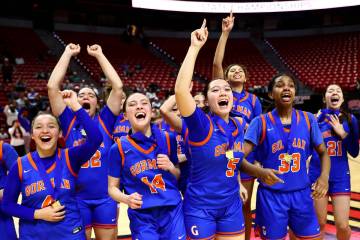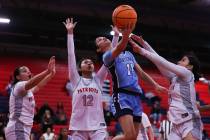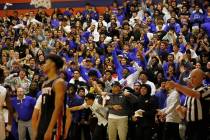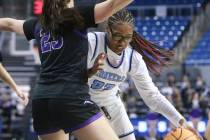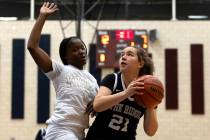Commentary: NIAA absolutely must change ‘Contribution to Victory’ rule
Rule No. 1: Don’t have a rule soaked in subjectivity.
It’s stupid.
The Board of Control for the Nevada Interscholastic Activities Association will hold its spring meeting Wednesday and Thursday at Palace Station, over which an agenda of 35 items will be presented, where at some point this will be addressed: Review of “Contribution to Victory” Rule Regarding Forfeits — For Possible Action.
There is only one sensible action: Eliminate it.
It’s stupid.
We were reminded of the rule during the recent prep basketball postseason, when the Calvary Chapel girls team used it to appeal a ruling that had the Lions forfeit 11 games for using an ineligible player.
What should have dropped Calvary Chapel to eighth place and out of the Class 2A Southern League playoffs instead had six of those forfeits reversed, meaning the Lions were seeded fourth in the league semifinals and eventually won the tournament to reach the state bracket.
What in the world is “Contribution to Victory?”
In short, the school filing an appeal “must establish by a preponderance of the evidence that the school would have won the game, contest or meet without the participation of the ineligible pupil … an ineligible pupil who participates in more than one-half of a game, contest or meet for which he or she is ineligible to participate may not appeal a forfeiture specified in subsection.”
This is where the subjectivity part runs wild.
In the case of Calvary Chapel, scorebook sheets had the ineligible player checked into the game for more than two quarters, but the hearing officer wanted proof of actual game time.
Like in exact minutes.
Which, really, makes zero sense.
If you step on the court, you played in the quarter.
One second, five minutes, you’re in the game.
The fact that some of the opponents against which Calvary Chapel used the ineligible player didn’t film the games — hey, school budgets are tight a lot of places — shouldn’t in any manner have been considered.
Basketball is more than points and rebounds and minutes on a stat sheet. A player’s influence on a particular game — positive and negative at both ends of the court — can reach far beyond numbers.
In this way, the hearing officer overthought the room and failed miserably.
Cheating is cheating
Calvary Chapel conceded it used an ineligible player, and whether doing so intentionally or not, it cheated.
So you forfeit the games, and that’s that.
“There should be no appeal,” said Needles athletic director Bill Darrow, who also serves as the Southern League president and will present the case for eliminating the rule at the NIAA meeting. “Wrongdoing is wrongdoing, and there should be consequences. If you play an ineligible kid, you should pay the penalty.”
He’s right. His school’s girls team as the top seed blew a 12-point lead and lost to Calvary Chapel in the league semifinals. Needles, though, should have been playing Laughlin, which would have been the fourth seed if not for Calvary Chapel getting those six wins back.
Instead, Laughlin was left out.
The same school that in 2017 was forced to forfeit a playoff baseball game against Needles for exceeding the pitch count.
Where was the appeal to save Laughlin then?
The “Contribution to Victory” rule has been around awhile, and I’m sure is based on some well-intentioned folks years ago, when some coach stuck a hardworking kid who hadn’t played a minute all season into a game his team was leading by 40 or so, only to discover later that the player was ineligible.
But that doesn’t mean it should remain part of the code now — you don’t keep an obviously flawed statute around for the sake of it.
“I absolutely understand why there would be a (sense the rule should be looked at),” said Bart Thompson, executive director of the NIAA. “The rule requires a great deal of subjectivity. Where we are right now is wherever the hearing officer says we are.”
I didn’t major in biological sciences, so to understand the process it takes to eliminate an NIAA rule — being heard by the Board of Control, gauging the appetite for change, drafting such change, discussing at the next meeting for final passage, sending it to a Legislative Council Bureau, returning it to the Board of Control, sending it to a Legislative Council for review, finally having it become part of the code — is asking a bit much.
So to all those above who might find themselves part of such a detailed endeavor, know this: Rules soaked in subjectivity aren’t good ones.
They’re, well, stupid.
Contact columnist Ed Graney at egraney@reviewjournal.com or 702-383-4618. He can be heard on “The Press Box,” ESPN Radio 100.9 FM and 1100 AM, from 7 a.m. to 10 a.m. Monday through Friday. Follow @edgraney on Twitter.



